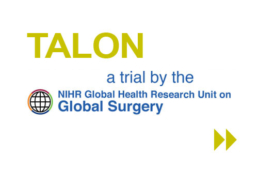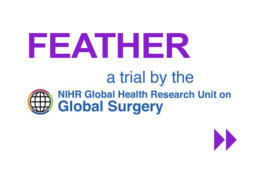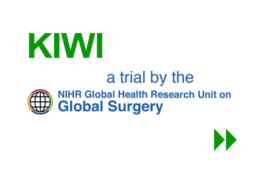SWATs
Improving surgical outcomes through collaborative research
The NIHR Global Health Research Unit on Global Surgery
Improving surgical outcomes through collaborative research
SWATs
Surgical site infection (SSI) is a worldwide problem which has morbidity, mortality and financial consequences. Previous studies in LMICs on the costs of SSI have been limited by small sample size single-centre hospitals which did not capture costs occurring after hospital discharge. The lack of follow up is a problem as SSI can occur after discharge and costs associated with SSI have been shown to persist beyond 30 days. The GSU aims to address this through research in patient follow-up mechanisms through its TALON, FEATHER and KIWI international studies, conducted in across our partner counties. Further information on the individual studies and how they are helping to improve healthcare can be found by clicking on the study links below.
SWATs Research

TALON STUDY
TALON is a sub-study embedded in the FALCON and CHEETAH trials, run as part of an NIHR Doctoral Research Fellowship in Global Surgery. The aim of the sub-studies is to improve the quality and efficiency of surgical trial methodology across low- and middle-income countries.

FEATHER STUDY
FEATHER is an investigation using qualitative methods embedded within several international multi-centre randomised trials (a study within a trial or SWAT).

KIWI STUDY
The FALCON KIWI sub study is assessing the resource use and costs for patients with and without SSI across several hub countries. KIWI includes resource use collection (via additional CRFs) up to the 30-day follow-up assessment for patients and extended follow-up for any patients with an ongoing wound infection up to 60 days post-surgery.’
Bringing together surgeons, researchers and policy makers to set the local research agenda according to patient need in LMIC and ensuring all patients have the opportunity to take part in our research.
